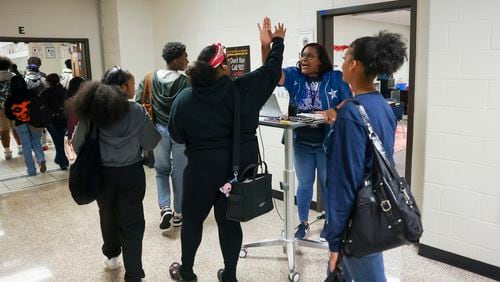More solar incentives needed for consumers
I agree with Steve Valk: “Our state has abundant resources to reduce our heat-trapping emissions” (“Step up, Georgia: Ditch the fossil fuels,” AJC April 18).
If Georgia Power limits the net metering program to 5,000 customers, then fewer will have an incentive to buy solar panels. Gov. Brian Kemp says Georgia is a business-friendly state, and we have an expanding solar panel factory, so why doesn’t Georgia Power want more consumers to add solar?
As a happy solar panel owner, my bill has gone from $225 a month to $40, which includes our excess power payback from Cobb EMC. Our solar panel loan increases our payment to well over $225, but we will have paid off the panels in less than 10 years by producing clean energy ourselves. The Public Service Commission wants to reduce costs for consumers yet allows more coal power plants instead of requiring more solar incentives for consumers. Shame on it and Georgia Power, and bravo to Cobb EMC.
KATHARINE PANZELLA, POWDER SPRINGS
Disappointed by Public Service Commission’s lack of vision
Last week, Public Service Commission regulators gave Georgia Power the green light to produce more electricity using fossil fuel-burning technologies (even coal!).
I’m very disappointed that they didn’t send Georgia Power back to the drawing board to come up with more environmentally sensitive approaches. We know now that emissions from these harmful sources are causing global climate change. Yet, when given a chance to show leadership, our PSC has basically said, “Well, others can take actions to dramatically increase the use of renewable resources, but we’re not going to because .. (any number of excuses apply!).”
Future generations will pay a steep price for the current PSC’s lack of vision and courage to address needed change. The PSC’s current regulators seem more interested in getting re-elected — keeping the rates low and Georgia Power profits high — than in being a model to other states and countries on how to navigate these complex challenges.
JAN PHILLIPS, DUNWOODY






